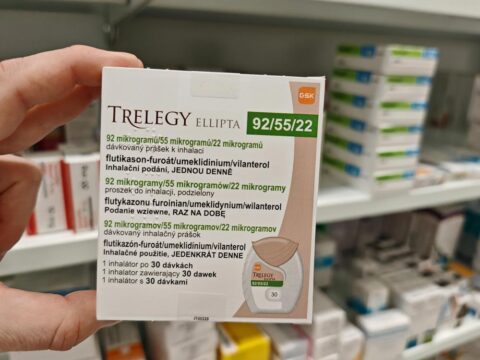Advertisment
IASLC 2011 Report – First-line therapy options in EGFR mutation positive advanced NSCLC
by Dr Sunil Upadhyay – Since the publication of the iPASS trial data, gefitinib has become the treatment of choice in EGFR mutation positive tumours. However, almost all the patients included in this study were of Asian origin. This is most likely due to the fact that the incidence of EGFR mutation in the Asian population is high. Until recently, such data in the European population has been lacking hence the incidence of EGFR mutation in the European population remains unknown. The evidence for erlotinib activity in EGFR mutation positive tumours in the first-line treatment setting is getting stronger. Radj Gervais from France presented the interim results of a Phase III clinical trial comparing erlotinib with platinum doublet in the treatment of patients with EGFR activating, mutation-positive non-small cell lung cancer (EURTAC). The data presented showed that there was a 63% (p < 0.0001) reduction in the risk of median progression free survival with erlotinib (9.6 months) compared with platinum based doublet (5.2 months). Patients receiving erlotinib experienced significantly fewer side effects compared with the chemotherapy group.
EURTAC was a prospective, controlled Phase III trial in which four platinum doublets were used.

*Chemotherapy regimens:
(a) Cisplatin 75 mg/m² D1 + Docetaxel 75mg/m² D1 Q 21
(b) Cisplatin 75 mg/m² D1 + Gemcitabine 1250mg/m² D1 & D8 Q 21
(c) Carboplatin AUC 6 on D1 + Docetaxel 75mg/m² D1 Q 21
(d) Carboplatin AUC 5 on D1 + Gemcitabine 1250mg/m² D1 & D8 Q 21
Patients were stratified by their EGFR-activating mutation type (exon 19 deletion vs exon 21 L858R mutation). Patients with controlled brain metastasis were eligible for randomisation. The baseline characteristics were well balanced in this study. The majority of the patients were females (67 vs 79%); never smokers (66 vs 74%); stage IV tumours (nearly 90%) and adenocarcinoma histology (nearly 90%). The primary end point was median PFS. Moreover, the subgroup analysis confirmed that the benefit in PFS was maintained across age, sex, PS, smoking behaviour and mutation type. The patients receiving erlotinib achieved a superior objective response rate (58 vs 15%), although only partial responses. A total of 49 out of 59 patients within the chemotherapy group crossed over to erlotinib following progression. A large number of patients in the chemotherapy arm had dose modification, delay or discontinuation of the chemotherapy regimen. The results of this trial are reassuring and provide further evidence that genetic characteristics of the tumour are critical in the management of advanced non-small cell lung cancer patients. It is also necessary to note that the prolongation of life and symptom control instead of cure remain as the management goals. Almost all patients will develop resistance to first generation TKI molecules and so second generation dual kinase inhibitors may have an important role to play in their management along with palliative cytotoxic therapy, radiotherapy and best supportive care. (Abstract O10.01).
The updated results of the OPTIMAL trial presented by Caicun Zhou from comparing erlotinib vs carboplatin plus gemcitabine also confirmed the superiority of erlotinib in terms of PFS, ORR and tolerability with better quality of life in the first-line treatment of NSCLC tumours with EGFR –activating mutation. Out of 165 patients randomised, 154 were included in this study (erlotinib 82 and chemotherapy 72). By the cut-off date of 7th Jan 2011, the updated analysis showed median PFS of 13.7 vs 4.6 months (HR=0.164, p<0.0001). Seventy percent of the patients on erlotinib showed clinically relevant improvements during the study period compared to approximately 30% (p<0.0001) of the patients receiving chemotherapy. (Abstract O10.02).





